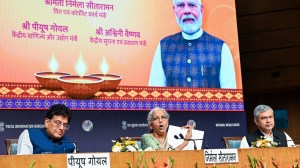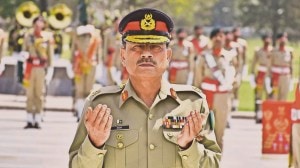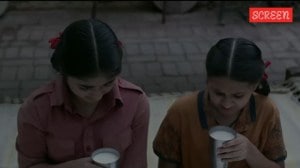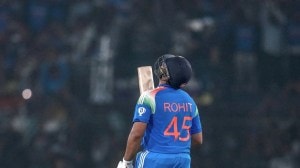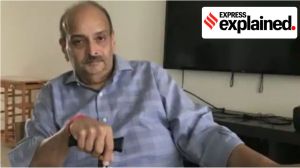In Chennai town, selling kidney is cottage industry
When Thambu sold one of his kidneys, he thought his problems in life were over. Three years later, he is an auto-rickshaw driver on Subbaray...

When Thambu sold one of his kidneys, he thought his problems in life were over. Three years later, he is an auto-rickshaw driver on Subbarayan Street, struggling to pay for his medicines. ‘‘They promised to give me Rs 1.5 lakh. But I had to fight to get Rs 80,000,’’ says Thambu, 34. ‘‘These days, I frequently fall ill and am not able to meet the medical expenses.’’
Thampu is one of the residents of the 150-odd huts in Namalwarpet on Kunnor High Road in north Chennai. In almost every hut here, there’s someone who has sold a kidney.
The Transplantation of Human Organs Act, 1994 makes it mandatory on the part of the donor and the recipient to get the approval of the state authorisation committee if the two are not blood relatives — father, mother, siblings — or married. The committee then has to satisfy itself that the donor is ‘‘emotionally attached’’ to the recipient and there is no transaction of money between the two.
The committee, however, cleared Thambu for donating a kidney to a patient admitted to MIOT hospital ‘‘believing they were cousins’’. Thambu now claims that he has not even his seen his so-called cousin.
Thambu’s wife Indumathi says, ‘‘In fact, I, did not even know that my husband was selling his kidney till the day of the surgery. The broker told me that he had paid Rs 2,000 to another woman to pose as Thambu’s wife before the committee. That woman even signed the papers instead of me.’’
Indumathi says she had fought with the brokers, Baskar and Tirumal, minutes before the surgery for leading her husband into a trap and keeping her in the dark. ‘‘But they threatened that they would complain to the police.’’
Even before the family could recover from that shock, Baskar had lured Indumathi’s mother Jaya to donate her kidney at the same hospital. She too appeared before the committee posing as a ‘‘distant relative’’ of the patient.
Hospital authorities say they are not aware of such deals. Dr P Ravichandran, Nephrologist, MIOT, says, ‘‘We do not encourage such things in this hospital. But if it has happened it is beyond my knowledge. It is a donor-patient deal.’’
So Baskar prospered. He managed to get many more women from the same area — Selvi Ganapathy, Lakshmi and her daughter Prema, to name a few — to sell their kidneys.
‘‘It was simple,’’ says Selvi Ganapathy, 30, a housewife, pointing to the scar on the left side of her waist. ‘‘I first went to a private hospital for check-up. They certified me healthy. As instructed, I told the committee that I was related to the 50-year-old patient admitted to the Madras Medical Mission (MMM). They approved the transplant and the surgery was performed on December 29, 2001,’’ she says.
Selvi says she was forced to sell her kidney for Rs 35,000 as her husband was unemployed. Dr Shanmuga Baskar, Nephrologist of MMM says, ‘‘I do not know if the transplantation was done here. I can only assure you that we never do a transplantation without proper documents.’’
This is where the matter gets tricky. Director of Medical Education Dr C Ravindranath, who is also the chairman of the authorisation committee, admits that the system is faulty. ‘‘Recently, we discovered that most donors had produced false addresses. Some even managed to fake our letters,’’ he says.
There are 45 recognised kidney transplant centres in Tamil Nadu, including 28 in Chennai, approved by the authorisation committee. ‘‘We meet only once a week and we are forced to clear at least 30 cases in that sitting. Despite lack of time, we manage to counsel every donor. Hospitals and the doctors should be morally responsible for the surgeries they do,’’ says a representative in the committee from the Directorate of Medical Services.
Dr M Jayakumar, nephrologist, Guest Hospital, where Nagamma and Jayalakshmi —both 40 and housewives — claim to have sold their kidneys, blames the lacunae in the law. ‘‘As long as the law says that emotionally attached people can donate kidneys, it cannot be stopped from misuse. People appear before the committee claiming to be maids and cousins and get the approval,’’ he says.
That, however, is only a part of the story. Prema and her mother Lakshmi did not even appear before the committee. And there are many more like them.
‘‘We did not know something like that existed. Three years ago, Baskar took me to the hospital. A year later my mother was taken to the same doctor at a different hospital. We were given Rs 35,000 each,’’ says Prema, 24, a domestic help.
The same was the case with their neighbour, flower-vendor Lakshmi, who also sold her kidney for Rs 35,000. By the way, Rs 35,000 is the minimum price of a kidney.
The people of Namalwarpet say Baskar used to live on Subbarayan Street till a few months ago.
‘‘He seemed to be having too many problems. He pleaded before us to save him. Then one day, he ran away,’’ says Selvi Ganapathy.
No one misses him, though. Many of the donors have now become brokers.



- 01
- 02
- 03
- 04
- 05








